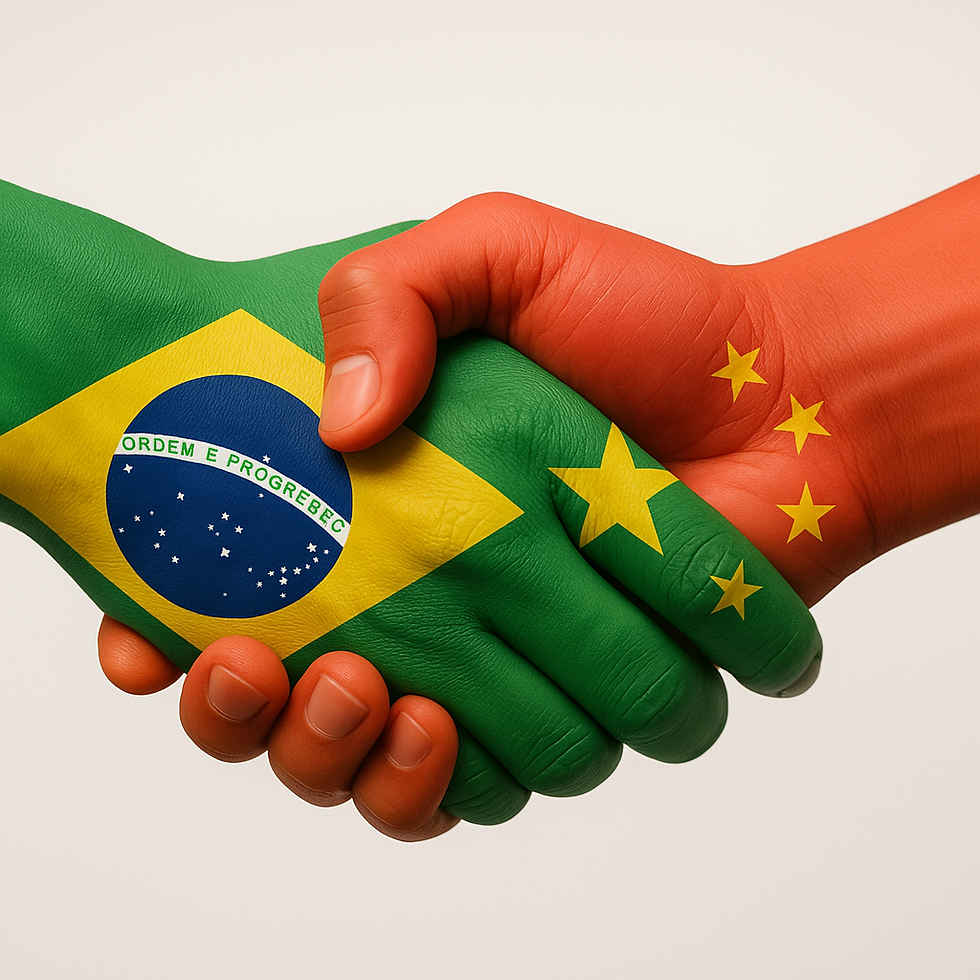Brazil Is Anything but Easy: A Giant Driven by the Liver of Ideologies
- Ricardo Gurgel

- 15 de ago.
- 3 min de leitura
Brazil is, without a doubt, fertile ground for investment. But to succeed, one must fully understand the mindset of its people, its business community, and its politicians. I can say this much: if Americans and other major global investors truly grasped what Brazilian politicians think, and how they act, they would be far more hesitant to bet on the country. Many only invest because they already know where Brazil is heading.
I envy China’s strategic capacity and its refusal to bluff. As I’ve said before, China only announces something when it has already done it, or when it’s so far along that no other global player can catch up. Brazil, in contrast, is no master of strategy. We are hostages to actions that needlessly create enemies who harm our economy. Ironically, winning an external enemy, though damaging to the country, boosts the popularity of provocative politicians. The average citizen does not recognize that such a politician may be the very cause of the economic complications, brought on by harmful rhetoric and bravado.
We tolerate billion-dollar losses without protesting import taxes that deprive us of cheaper cars, computers, clothes, footwear, electronics, and countless other goods. Brazil is extremely protectionist, a nice-sounding word that, in reality, shields large industries from better-quality and lower-priced competition. This allows them to operate with little pressure, charging more for products that don’t need quality refinement, thanks to the massive barriers protecting them.
Protecting industry is protecting jobs?
What truly protects jobs is a tax structure that does not suffocate industry, commerce, and services. Here, however, public money is funneled into areas of questionable benefit, while the “Brazil cost” keeps rising, and despite already crushing taxes, new ones continue to appear.
The import sector generates more jobs than concentrated industry.
I remember countless import shops in my small city bringing in a variety of products from around the world. That quickly ended when taxes and bans, pushed by lobbying, took over. Today, imported products often cost twice as much as their domestic equivalents, when they’re not outright banned.
And where does innovation fit in?
Brazil is bureaucratic when it comes to adopting innovation. Without innovation, the creation of new ideas is slowed. It’s like having to reinvent the wheel before building the car. Our long-standing protectionist culture benefits large corporations but delays progress. In radio, for example, transmitters and receivers are absurdly expensive — even when they are far from cutting-edge, making a digital transition in broadcasting prohibitively costly and delaying any revolution in the sector for decades.
It often feels like the only chance would be for “Mother China” to say: “Brazil, do this, I want it!”. And China knows exactly how to play this game. If it comes in as a domineering force, Brazil will resist. But if it arrives as a “friend,” promising jobs and “protection from the U.S.,” it might easily win over the market, just as it has in other industries, from electric cars to advanced technology.
When I was a child, Chinese products were seen as low-quality copies. Over time, they matched the originals, especially as the original manufacturers themselves began producing in China. Today, China makes many goods of unmatched quality and scale. I see Chinese cars everywhere, stylish, affordable, and competitive. China doesn’t forgive markets: it wants them all.
If China decides to bring its digital radio model to Brazil…
It wouldn’t be simple, but it’s the only country with the clout to negotiate such a move. And having embraced DRM, it could push the standard here, even launching powerful shortwave broadcasts in DRM that could be heard clearly over vast distances. This would not only revive radio influence but also open markets for transmitters, receivers, and other related technologies.
Brazil is complicated, but it’s a land of immense opportunities for those who know how to play the game.












Comentários